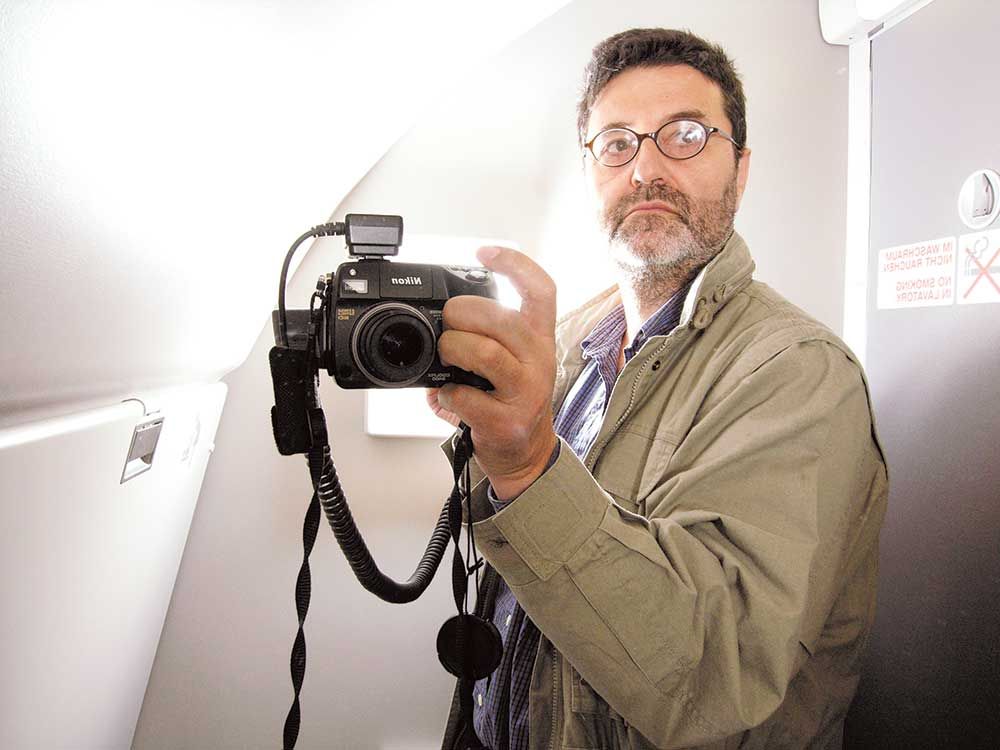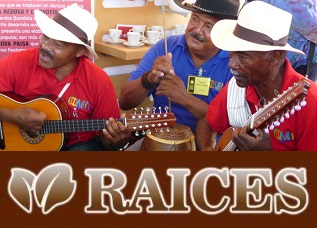MacArthur Fellows come here with the mission of: each one, teach one.
Monterey County Weekly
www.montereycountyweekly.com
-

Camilo Jose Vergara “I feel that a people’s past, including their accomplishments, aspirations and failures, are reflected…in the environment over time,” Camilo Vergara writes.
Camilo Jose Vergara photographs the streets, storefronts, buildings and blocks of poor cities again and again, the same spots, year after year, in a process called rephotography. He returns to the same locations for decades. Over time, the evolution or de-evolution of a location can reveal what is happening to the neighborhood, the city, the country. He’s done this is Detroit, in Harlem, in Los Angeles, Newark, Gary, Camden – 16 cities so far. He’s published eight books based on this work and Rutgers University sponsored a website, Invincible Cities, which touts itself as a “visual encyclopedia of the American ghetto.” (See Vergara’s work and an extended interview at mcweekly.com/culture.)
In 2002, Vergara won a MacArthur Foundation grant to incubate more of that work. That award comes from the John D. and Catherine T. MacArthur Foundation, given annually since 1981 to about individuals each year to support the promise of their work. That award comes not in the form of medals or trophies, but in money. Each recipient now receives about $625,000, no strings attached, dispersed quarterly until it’s all delivered.
The money isn’t a reward for good work, but an investment in people – scientists, artists, historians, writers, technologists, economists, poets, activists – who the foundation believes will create something that moves humanity toward a “more just, verdant and peaceful world.”
Anonymous nominators choose MacArthur Fellow nominees. Another anonymous committee chooses the winning Fellows. A nominee supposedly can’t campaign to win it. That envelopes the process in mystery that can yield interesting stories.
Amalia Mesa-Bains, artist, cultural rights advocate, and professor emerita at CSU Monterey Bay, got one in 1992.
“Everyone has a hilarious story,” she says. “You get a phone call: The year I got mine, it was, ‘This is Dr. Hope. You’ve been selected to receive a MacArthur.’ I said, ‘Is this a joke? Who is this?’ He said, ‘This is a common response.’”
People like Stephen Jay Gould, Henry Louis Gates Jr., Bill Viola and Errol Morris have been awarded. But so have more anonymous figures like Brian Tucker, a seismologist, and American activist Ai-jen Poo.
Poet and writer Sandra Cisneros earned the grant in 1995. She assembled a team of Latino MacArthur Fellows into a bloc they informally call the “MacArturos” to convene in different cities over the years – like San Jose, Fresno, Los Angeles, Toledo and Chicago – and reach out, speak to and inspire young Latino people. They also support each other’s social justice work, especially in the Latino community.
“[Social justice] is one of the threads that bind the MacArturos,” Mesa-Bains says. “Through art or social practice. I think that’s more true of the MacArturos than the larger MacArthur Fellows.”
On Monday, Jan. 26, a number of the MacArthurs are coming to Salinas and CSU Monterey Bay to speak as a group. The latter is a public roundtable discussion at 6pm at the CSUMB World Theater, moderated by their host, Mesa-Bains. She wanted them to come to Salinas because the city has above-average school dropout rates. She wanted them to come to CSUMB because many of its students are the first in their families to attend college, and more than a third are Latino.
The MacArthur Foundation has not shown much “engagement” with the MacArturos spinoff, which is comprised of about 20 Latino Fellows.
“I think we’re the only subgroup,” Mesa-Bains says. “We have a cultural practice of collectivity. We are engaged with the community.”
At CSUMB, they will talk about their work, their inspiration, what set them on their path, obstacles and strategies. The grants are sometimes referred to as “genius grants,” but the MacArthur Foundation doesn’t embrace that moniker; the MacArturos are more about vision and serving the community.
“They’re creative. All of them,” she says. “Many of us started out the children of farmworkers and domestics. There are a lot of mavericks.”
The MacArturos coming here include Vergara, cultural anthropologist Ruth Behar, Jefferson Institute director Joan Abrahamson, bookseller Rueben Martinez, Albuquerque development leader Maria Varela, filmmaker Natalia Almada, Radio Bilingue Executive Director Hugo Morales and social services innovator Mauricio Miller.
Cisneros is not attending, though Mesa-Bains says the university may bring her up later.
“We’re really going to miss her,” she says. “She’s been a guiding light.”
Hugo Morales of Radio Bilingue has taken up the cause, raising money for the MacArturos’ travel and promoting them on English and Spanish radio.













